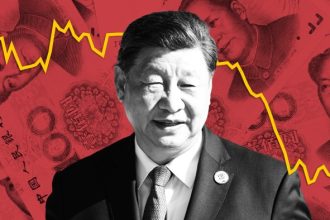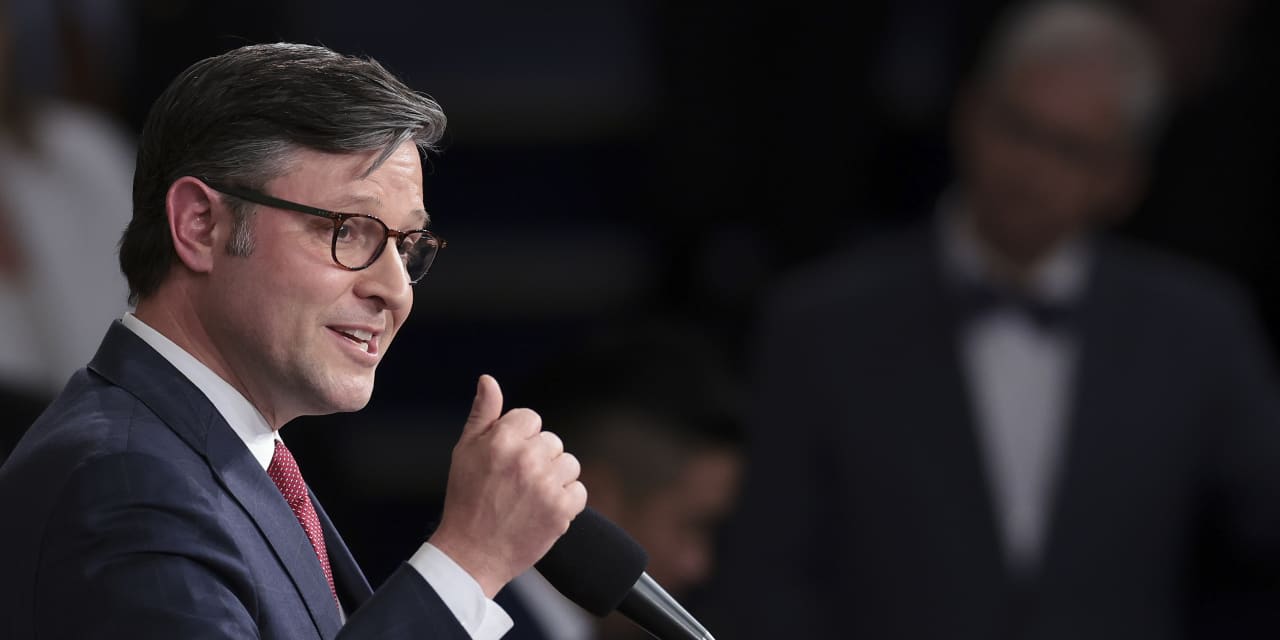House Republicans unveiled a stopgap plan for funding the federal government on Saturday, giving Congress just under a week to pass legislation that would avert a shutdown.
House Speaker Mike Johnson proposed a “two-step” continuing resolution, or CR. A CR is a temporary measure used to fund government activities for a limited time while Congress irons out a final appropriations bill.
CRs are fairly common. Congress has enacted one or more in all but three of the 47 fiscal years since 1997. But Johnson’s measure is a bit different from the typical one. The proposal he is backing would extend some appropriation bills to Jan. 19, and the others into Feb. 2.
“This two-step continuing resolution is a necessary bill to place House Republicans in the best position to fight for conservative victories,” Johnson wrote in a post on X. “The bill will stop the absurd holiday-season omnibus tradition of massive, loaded up spending bills introduced right before the Christmas recess.”
Congress has until Nov. 17 to pass a funding measure that would avoid shutting down the federal government. So far, efforts to pass an appropriations bill have been hampered by disagreements within the majority party, pitting the GOP’s far-right caucus against centrists.
The two-step approach, also called a “laddered” CR, is Johnson’s attempt to find common ground. Just how successful it will be is up for debate.
For one, the laddered approach may face more pushback from Democratic House members than a standard CR, wrote BTIG analyst Isaac Boltansky in a note early Saturday. It may also face pushback in the Senate as it may be viewed as “overly-complex,” he added.
Johnson is trying to walk a tightrope. Conservative Republicans are likely to reject a CR that doesn’t include significant reductions in spending—while anything with deep spending cuts would be a nonstarter with Democrats who control the Senate, according to Boltansky.
“All said, the new Speaker is facing the same complicated calculus as the old Speaker and the only thing that has changed is that
more than a month of the legislative calendar has been wasted,” he added.
It’s a bit too early to tell how markets will react to Johnson’s plan. The fight could ramp up some volatility in equities, though government shutdowns have historically had little impact on the stock market.
Where we might see more impact is in the bond market, which has been rallying lately but could pull back on another bout of turmoil in Washington .
On Friday, Moody’s Investors Service downgraded its outlook on U.S. government debt to negative from stable, citing a rise in political polarization and growth in the federal deficit as key reasons. The firm retained its top Aaa rating for U.S. credit, however, unlike other credit credit-rating firms. Fitch downgraded U.S. credit this past August, while S&P downgraded it in 2011.
Write to Sabrina Escobar at [email protected]
Read the full article here





